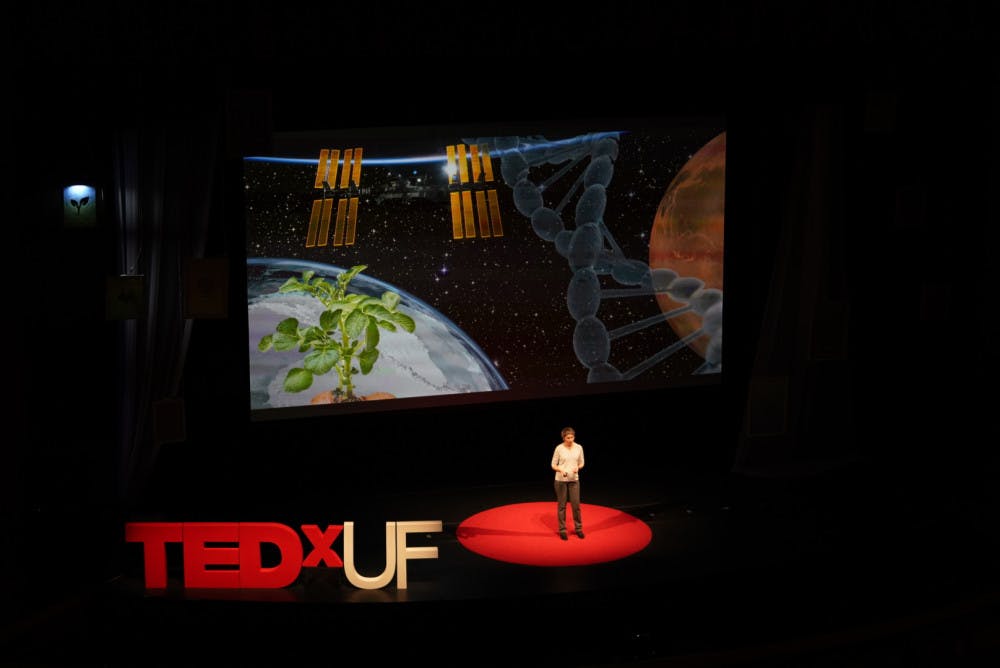Queerbaiting, orgasm equality and moth poop brought more than 850 people to the 10th annual TEDxUF conference Saturday.
For its anniversary, TEDxUF, an independent TED conference dedicated to ideas worth spreading, brought 10 speakers to the Phillips Center for the Performing Arts to discuss plants on Mars, peace in the classroom, moths’ role in fruit and modern equality. This year’s theme was “Legacy” in honor of TEDxUF for a decade.
The budget for the event was about $48,750.
One of the speakers, Laurie Mintz, a UF psychology professor, believes the legacy of orgasm equality needs to be changed, she said. She wants to make sex a comfortable topic with science-based facts.
“Despite sexual images all around us, talking about sex makes most people a bit uneasy,” she said. “Let’s place the clitoris in the public eye.”
Joey McGinn, a 22-year-old UF political science senior, spoke about a different equality: queer equality.
Only 8.8 percent of television shows have LGBTQ+ characters, McGinn said. Queerbaiting is often used to bring in queer characters, which hints at a character’s sexuality without a clear statement.
McGinn doesn’t believe this is enough to label a character as queer, he said. He wants the heterosexual character default to change, especially for younger audiences.
“Queer characters, while starting to be more pertinently seen and heard, still comprise a small fraction of some of our greatest heroes,” he said. “It’s up to us to stand up and take them off the shelf.”
Lisa Merlo graduated as a triple-major student with a 4.0 GPA and set out to finish her doctorate degree two year earlier than expected.
One day, she found herself in the emergency room diagnosed with exhaustion.
Merlo, now a UF psychiatry professor, encouraged the audience to stop chasing success and to invest in personal relationships and find what is meaningful to you.
“Each of us has the option to choose a life of meaning for ourselves,” she said. “Let’s redefine success by what matters.”
Akil Reynolds, a 22-year-old UF public health senior and TEDxUF speaker, said the happiest day of his life was when he was accepted to UF.
Now, he questions if he is only at UF for diversity’s sake.
However, UF says its not allowed to consider race or ethnicity in admissions.
“For me, a college degree was sold as a means of liberation,” Reynolds said. “If higher education was actually liberatory, we would all contribute ethnically.”
Justin Calloway, a 20-year-old UF computer science sophomore, said Reynolds sparked anger with some people.
“He shook the table,” he said. “That was really necessary.”
Merlo’s talk about chasing success altered Calloway’s perspective on his future.
“You’re very focused on graduating and getting a degree and all these involvements,” he said. “We don’t really talk about what we want our lives to mean.”






